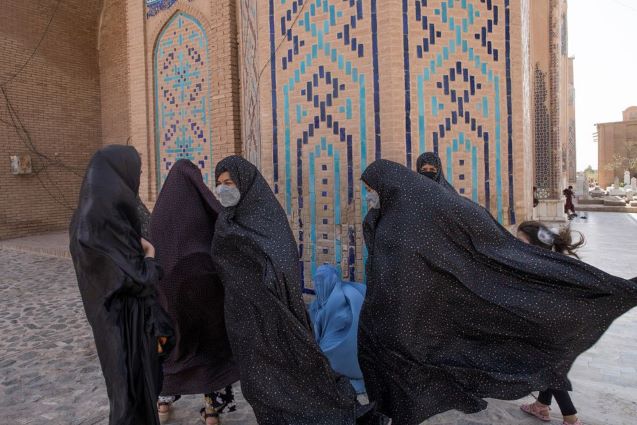Engineering student Somaya Faruqi had to flee Afghanistan to continue her studies after the Taliban government returned to power two years ago and banned more than 1.1 million girls and women from schools and universities.
The 21-year-old, now living in the United States, is the face of a campaign launched Tuesday by the UN’s Education Cannot Wait global fund to combat the crisis, marking the second anniversary of the fall of the internationally recognized government in Kabul.
Under the motto #AfghanGirlsVoices, the operation is spearheading a global call to respect all Afghan girls’ and women’s rights to education.
Countless of these girls and women have already had to leave the country to continue their education.
Faruqi, for example, finished high school in Qatar after she and nine other girls from her robotics team, “The Afghan Dreamers” left Afghanistan in 2021.
Now, she is beginning her second year studying engineering at Sacramento State University in California, thanks to a scholarship from Qatar.
“This campaign is meant to bring the attention of the world again to the girls in Afghanistan, and (their) education issues,” Faruqi told AFP by telephone.
“Afghanistan seems to be forgotten,” she added.
The near-total exclusion of women from Afghan public life, including in education and employment, has become one of the major sticking points preventing the international community from offering aid and official recognition to the Taliban government.
Conditions for women and girls in Afghanistan are the “worst globally,” a UN report found last month, saying that the Taliban government’s policies — which are based on their strict interpretation of Islam — could amount to a “gender apartheid.” The state of women’s rights in Afghanistan “should count as a crime against humanity, and it should be prosecuted by the International Criminal Court,” the UN special envoy for global education, former British Prime Minister Gordon Brown, told reporters during a video meeting Tuesday.__Daily Times





